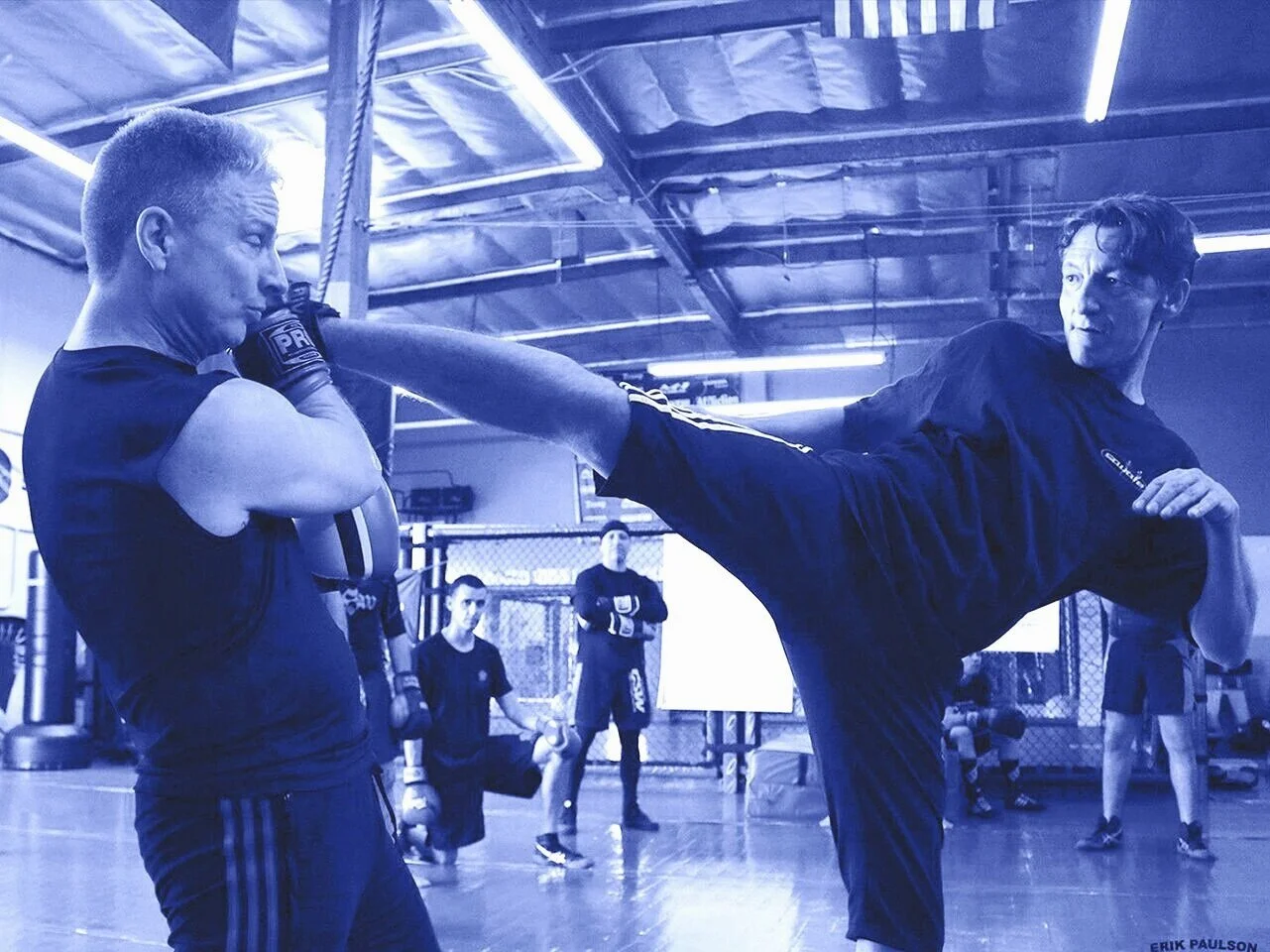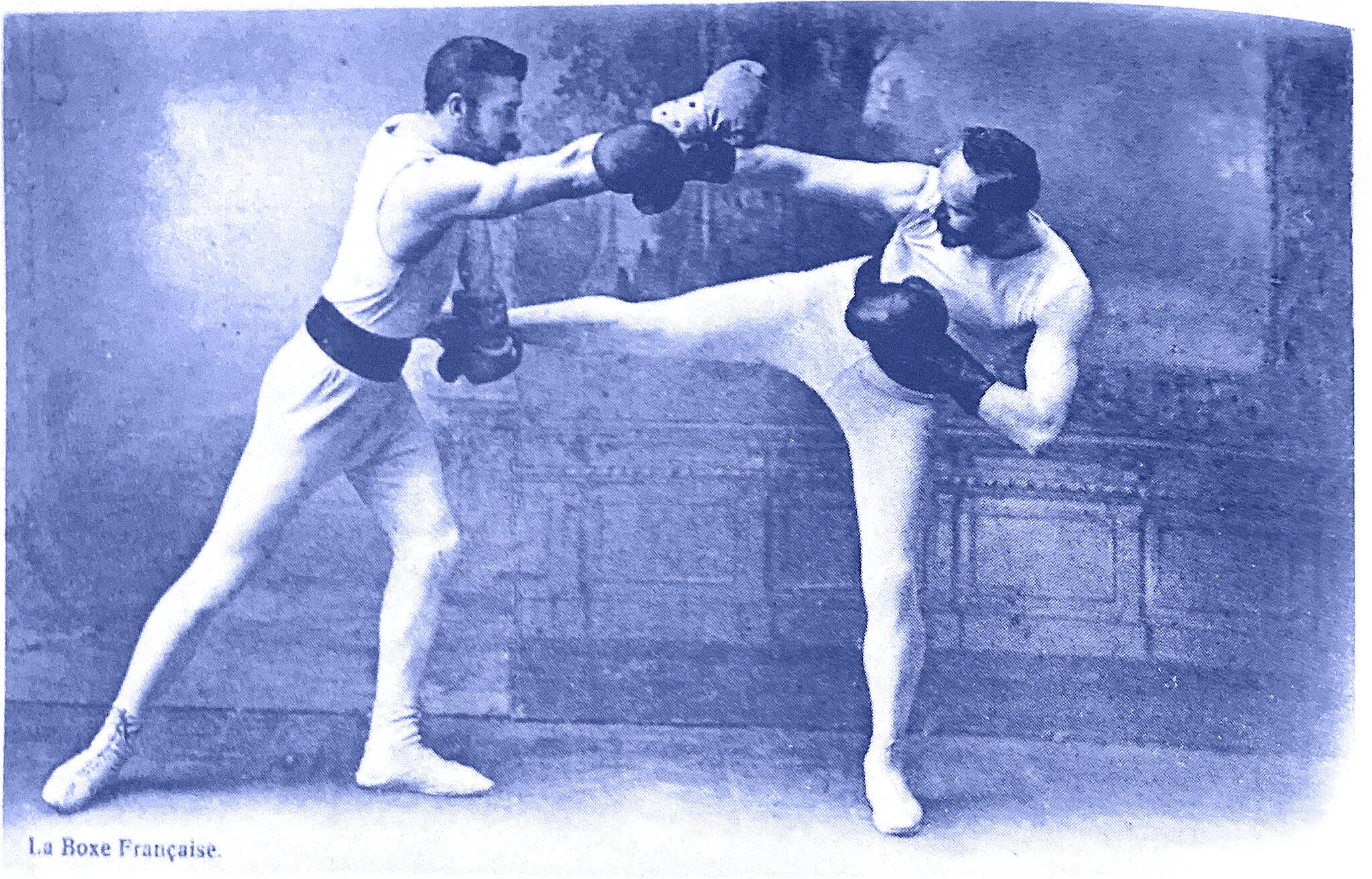In the south, especially in the port of Marseille, sailors developed a fighting style involving high kicks and open-handed slaps. It is conjectured that this kicking style was developed in this way to allow the fighters to use hand to hold onto something for balance on a rocking ship’s deck, and that kicks and slaps were used on land to avoid the legal penalties for using a closet fist, which was considered a deadly weapon under the law. It was known as a jeu marseillais (game from Marseille), and was later renamed chausson (slipper, after the type of shoes the sailor wore).
Traditional Savate was a northern French development, especially in Paris’ slums, and always used heavy shoes and boots derived from its potential military origins. Street fighting Savate, unlike chausson, kept the kicks low, almost never targeted above the groin, and were delivered with vicious, bone-breaking intent. Parisian Savate also featured open hand blows, in thrusting or smashing palm strikes (le baffe) or in stunning slaps targeted to facial nerves, Techniques of Savate or chausson were at this time also developed in the ports of northwest Italy and northeastern Spain- hence one Savate kick named “Chasse Italiane.”
Today, Savate is a kickboxing fighting art using shoes and gloves practiced throughout the world by women, men, and children. Some of Savate most well known fighters are George Carpentier, Richard Sylla, Francois Pennachio, Bertrand Soncourt, Amri Madani, and Anissa Meksen. World kickboxing legends such as Ernesto Hoost and Lucia Rijker have also earn Savate titles in their careers. These champions and so many others turn to Savate to enhance their footwork, distance control, cadence, combinations, and much, much more!
"Savate is truly a great efficient martial arts. After I started practicing Savate, my whole kickboxing skills improved tremendously. If you can work with a trainer as good as Nicolas Saignac, don't pass the opportunity!" Jerome Turcan




